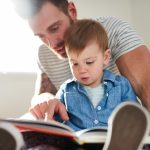When social interaction came to a halt during the early months of the COVID-19 pandemic, newborn babies missed out on vital communication milestones, researchers say.
A new Irish study found about 25% of these new babies spent a year without ever meeting a child their own age. Incidental interactions with strangers and community members at grocery stores or play groups didn’t happen. They rarely had a chance to wave “bye-bye.”
But it’s not cause for parents to worry, cautioned lead study author Dr. Susan Byrne, a senior lecturer in pediatrics and child health at the Royal College of Surgeons in Dublin, Ireland.
“Babies are very resilient and, obviously, the pandemic measures are all reduced now so there’s loads of opportunities for people to get out with their little people and for them to see the world,” Byrne said.
For the study, researchers used data from 1,629 infants born between 2008 and 2011 (BASELINE study) and compared that to data on 309 infants (in the CORAL study of allergies and autoimmune dysregulation in infants) born during lockdown. These babies were born between March and May 2020.
The researchers assessed 10 developmental outcomes, including communication skills, such as expressing one definite and meaningful word, pointing at objects and waving “bye-bye.”
The differences in language skills were small, the investigators found.
About 77% of the CORAL babies had expressed one definite and meaningful word compared to 89% of the BASELINE babies. About 84% of the CORAL group could point, compared to 93% of the others. About 88% could wave bye-bye compared to about 95% in the BASELINE group.
“What we put it down to is that the babies were probably seeing far fewer people and hearing fewer words and voices,” Byrne said. “And they also were in their homes for most of the time, so they didn’t have anyone to wave bye-bye to because nobody was coming to the house and nobody was leaving,” she explained.
“Also, with pointing, you want to point at things in a new environment if you’re a little baby, but if you’re not really in a new environment because you are advised to stay home or have limited movements, you’re less likely to be pointing at things,” Byrne added.
However, the babies did have stronger command of another skill: They were more likely to be crawling at 12 months than their earlier counterparts.
The researchers also found higher rates of breastfeeding and immunization for these babies, as well as a slightly increased risk of eczema, or atopic dermatitis.
Ireland experienced a tight lockdown for about 13 months, Byrne said.
“The social circles of the babies were extremely small,” she noted. “When the babies came home, other than their parents they were only seeing one other adult outside the home.”
Now, though, this group is 2 years old. Researchers are continuing to check in with parents on milestones and doing standardized assessments.
Demographic differences between the two groups of babies were that there were fewer first-born babies in the CORAL study, and more mothers in the CORAL study who had achieved higher levels of education.
Study limitations include that the researchers were comparing two different groups of babies, which isn’t an exact science. The findings also relied on parental recall.
It can be hard to tease out whether the pandemic was good for child development, bad for it or mixed, said Dr. Dipesh Navsaria, associate professor of pediatrics and human development and family studies at the University of Wisconsin–Madison.
It’s possible to argue that not interacting with peers and teachers was bad for babies’ development, Navsaria said. Conversely, someone could argue that intensive time together as a family may actually have improved development because of reciprocal nurturing interactions between baby and parents.
“If your parents have to be home and you’re home, then presumably there would be a lot more of that,” Navsaria suggested.
Depression of parents during lockdown could also have had an impact on a baby’s development, he said, noting that many adults and children experienced mental health issues because of the strains of the pandemic.
“A depressed parent is much less likely to do the back-and-forth interaction, and you’d see some delay just simply from that,” Navsaria said. “Whether that depression is due to lockdown or whether that depression is due to not receiving care because no one’s going to clinics and doing the parental depression screenings is debatable.”
Navsaria said babies who may have experienced some social delays will likely catch up without much trouble because baby brains are still very “plastic.”
Navsaria and Byrne said parents can aid that growth by engaging with children in the usual ways. Child-directed language and play can help, as well as narrating trips to the grocery store or other activities, Navsaria advised.
“Doing all the things that one would typically do will get them back there,” he said.
The findings were published online Oct. 11 in the Archives of Disease in Childhood.
More information
The U.S. Centers for Disease Control and Prevention has more on infant developmental milestones.
SOURCES: Susan Byrne, MD, PhD, senior lecturer, pediatrics and child health, University of Medicine and Health Sciences, Royal College of Surgeons in Ireland, Dublin; Dipesh Navsaria, MD, MPH, associate professor, pediatrics and human development and family studies, University of Wisconsin–Madison; Archives of Disease in Childhood, Oct. 11, 2022, online
Copyright © 2026 HealthDay. All rights reserved.
















